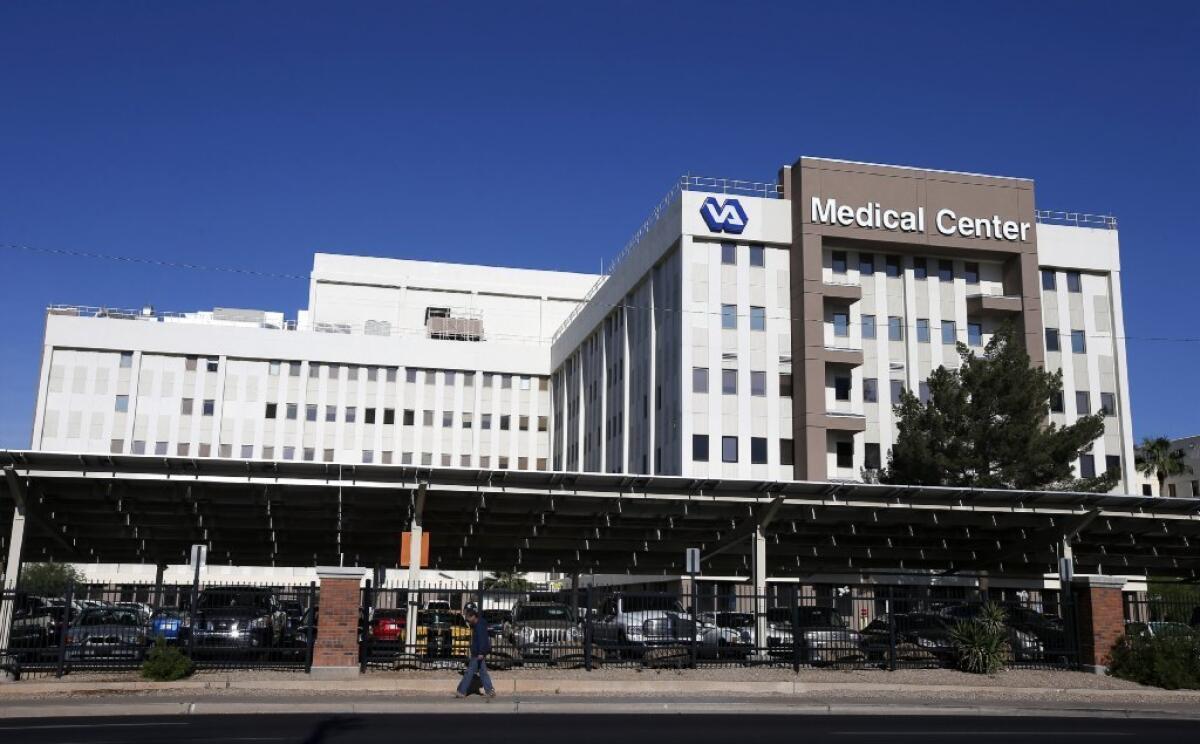VA probing whether scopes gave patients superbug infections

- Share via
Veterans Affairs Department officials are investigating whether patients have been exposed to antibiotic-resistant superbugs from tainted medical scopes in the wake of several hospital outbreaks.
The VA said Friday it began looking into the possibility of patient infections in late February after a deadly outbreak was disclosed at UCLA’s Ronald Reagan Medical Center.
The bacterial infections at UCLA and other hospitals have been linked to duodenoscopes used in a procedure known as ERCP, or endoscopic retrograde cholangiopancreatography.
The VA system said it performs about 4,500 ERCP procedures annually.
“We are investigating whether anyone has been infected with antibiotic-resistant bacteria linked to the use of these scopes,” said VA spokeswoman Ndidi Mojay. “The results of the investigation haven’t come back yet.”
As part of the government review, the VA’s National Program Office for Sterile Processing has been in contact with device manufacturers “to ensure every effort has been made toward addressing the current issue of a drug-resistant superbug known as CRE, or carbapenem-resistant Enterobacteriaceae.”
CRE is highly resistant to antibiotics and can kill up to 50% of infected patients.
Seven UCLA patients were infected with CRE from contaminated scopes, including two who later died. Last week, Cedars-Sinai Medical Center disclosed that four of its ERCP patients were infected with CRE, and it notified more than 60 other patients about possible exposure.
Last month, federal authorities warned hospitals about the difficulty in cleaning the complex scopes and how bacteria can become trapped in tiny crevices at the tip of the devices.
The VA said it “enforces strict adherence to manufacturer instructions ... for pre-cleaning at the bedside, manual cleaning in the decontamination area as well as high-level disinfection.”
VA officials said they also take additional steps to ensure patient safety, from rigorous employee training to routine testing of scopes after cleaning to check for dangerous germs that may have been missed.
In 2009, the VA discovered a similar problem with endoscopes used for colonoscopies.
At that time, the agency notified about 11,000 patients that they may have been exposed to HIV, hepatitis C and other diseases because endoscopes weren’t properly cleaned and became contaminated.
The VA health system includes more than 150 medical centers and nearly 1,400 outpatient clinics across the country.
When it comes to the deadly CRE superbug, patients can become infected in a number of different ways or bring it with them into the hospital in some cases. Many hospitals have increased surveillance and testing of patients to better determine the source after the recent incidents.
On Thursday, the Centers of Disease Control and Prevention issued recommendations for how hospitals can test their duodenoscopes.
Some hospitals have started to quarantine their scopes for up to 48 hours after cleaning in order to culture them for any bacterial growth before reuse. However, that can require purchasing many more scopes, which can cost up to $40,000 apiece.
Other hospitals are considering weekly scope testing or turning to gas sterilization of the instruments to kill off harmful bacteria.
Twitter: @chadterhune
More to Read
Inside the business of entertainment
The Wide Shot brings you news, analysis and insights on everything from streaming wars to production — and what it all means for the future.
You may occasionally receive promotional content from the Los Angeles Times.











